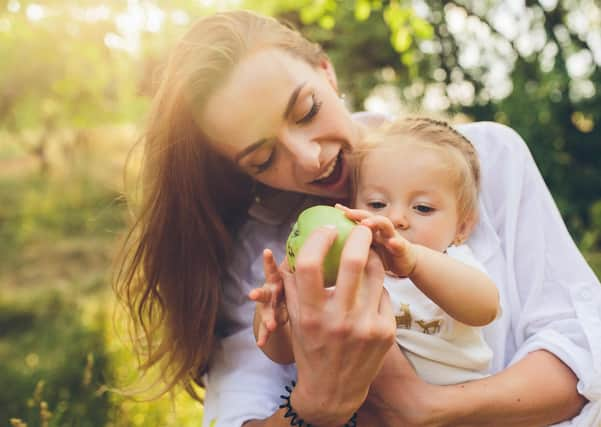Apples, carrots and lettuce could contain dose of plastic


Tiny fragments of waste plastic have been found inside carrots, apples, turnips, lettuce and wheat plants, new international research shows.
The discovery raises concerns over the safety of the food we eat and sparks new calls for studies on the impact of ingesting plastics on human health.
Advertisement
Hide AdAdvertisement
Hide AdFor decades scientists have believed that plastic particles are too large to pass through the physical barriers of intact plant tissue.
However, the findings from two new studies published this week cast doubt on the theory, with fruit, root vegetable and leafy crops revealed to be most at risk of microplastic contamination.
According to Margherita Ferrante, a scientist at Italy’s University of Catania, apples are the most susceptible fruits, while carrots are the vegetables most affected.
Meanwhile, a collaboration between Dutch and Chinese researchers is set to reveal plastic is being sucked up with water through the root systems of food crops such as lettuce and wheat, then transported to the edible plant parts.
Previous research has revealed that a third of UK-caught fish, including cod, haddock, mackerel and shellfish, contain plastic.
Estimates suggest lovers of shellfish are eating up to 11,000 plastic fragments in their seafood each year.
This is just a fraction of the total amount, with the average person thought to ingest at least 50,000 microplastic particles annually and breathe in a similar quantity.
True levels are likely to be many times higher, as only a small number of foods and drinks have been analysed for plastic contamination.
Advertisement
Hide AdAdvertisement
Hide AdBoth new studies have been shared with the Plastic Health Coalition ahead of a key summit looking into the relationship between plastic and health, being held in Amsterdam in April 2021.
The findings pose serious questions over the safety of the food we eat., campaigners say
Maria Westerbos, founder of the Plastic Soup Foundation, which is organising the event, said: “For years we have known about plastic in crustaceans and fish, but this is the first time we have known about plastic getting into vegetables.
“If it is getting into vegetables, it is getting into everything that eats vegetables as well, which means it is in our meat and dairy as well.
“What we need to find out now is what this is doing to us.
“This is unchartered territory. Does plastic make us sick?”
Sian Sutherland, co-founder of environmental campaign group A Plastic Planet, said: “Plastics are in our air, ocean and soil. And now, finally, we have the proof plastics are in the fruit and vegetables we feed to our children.
“But a five-a-day diet of toxic microplastics and chemicals is not what the doctor ordered.”
Comments
Want to join the conversation? Please or to comment on this article.